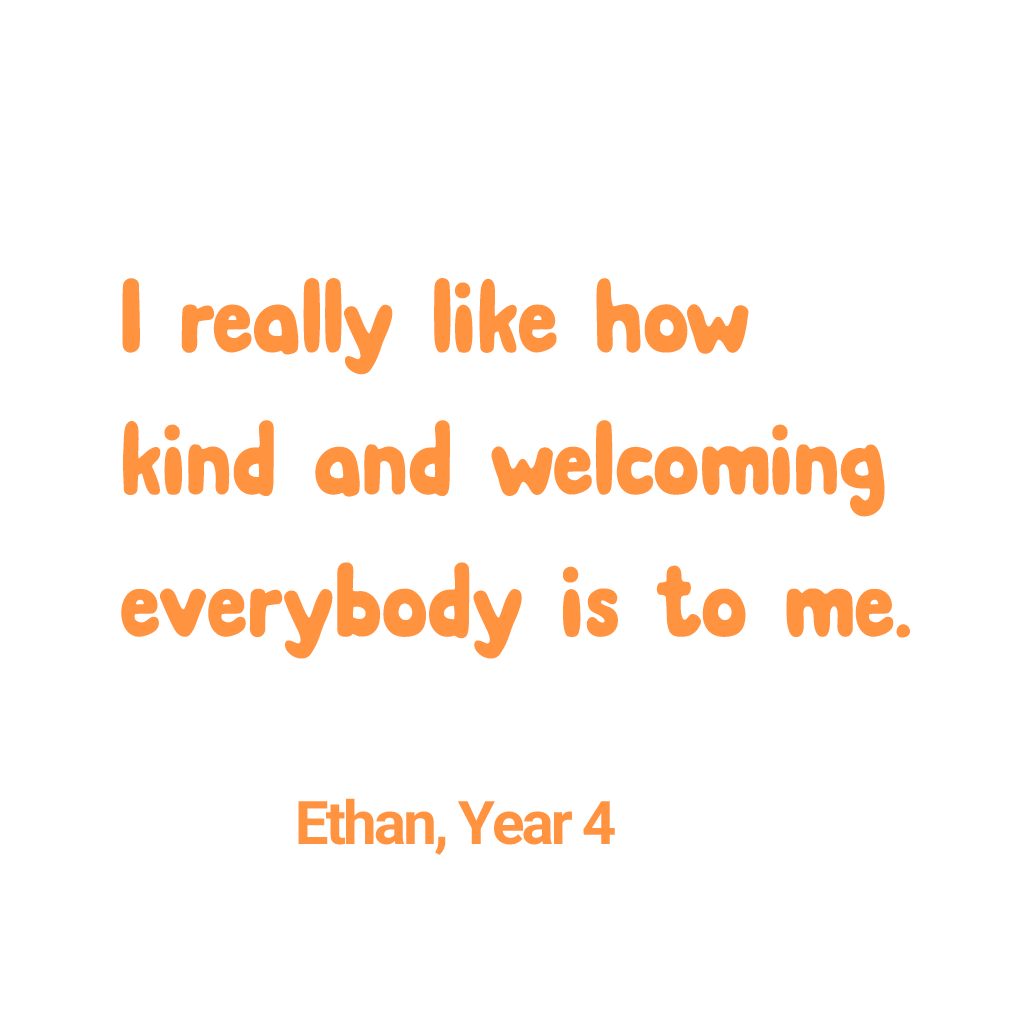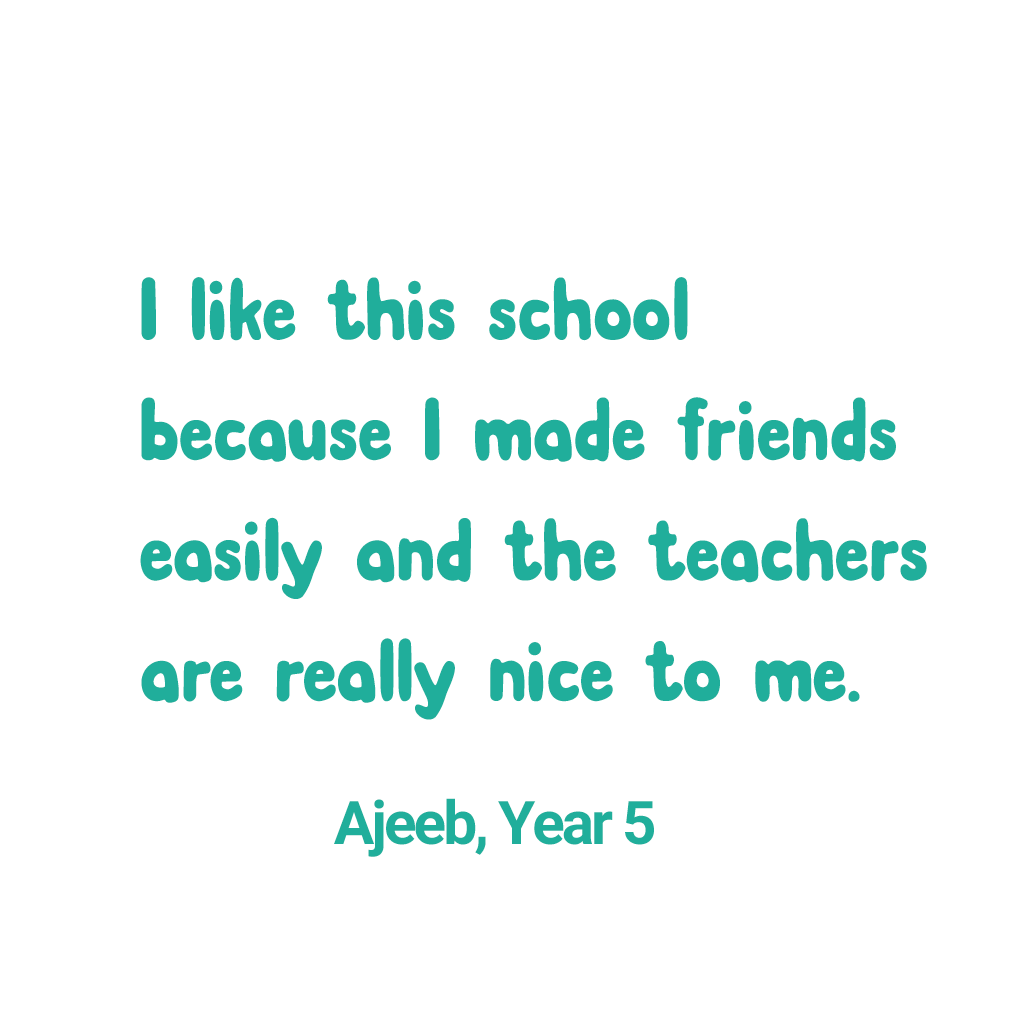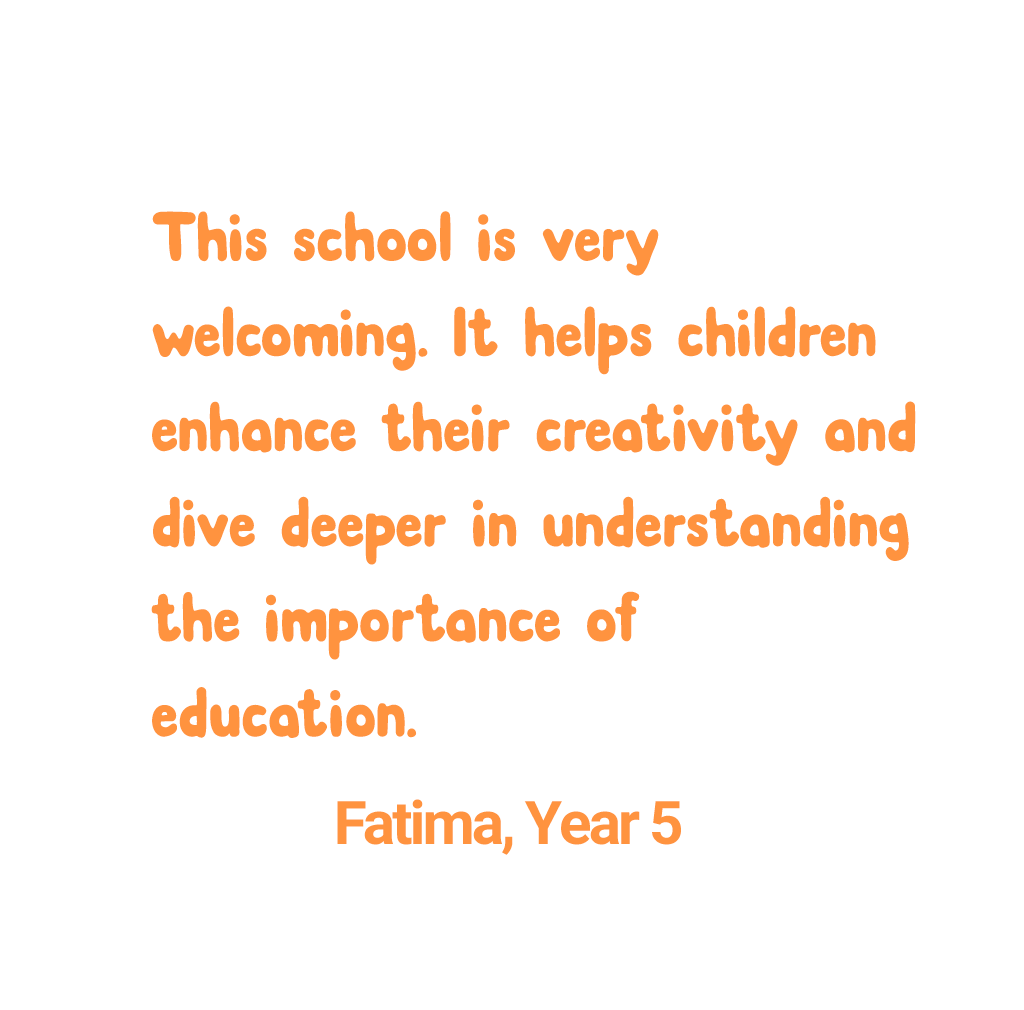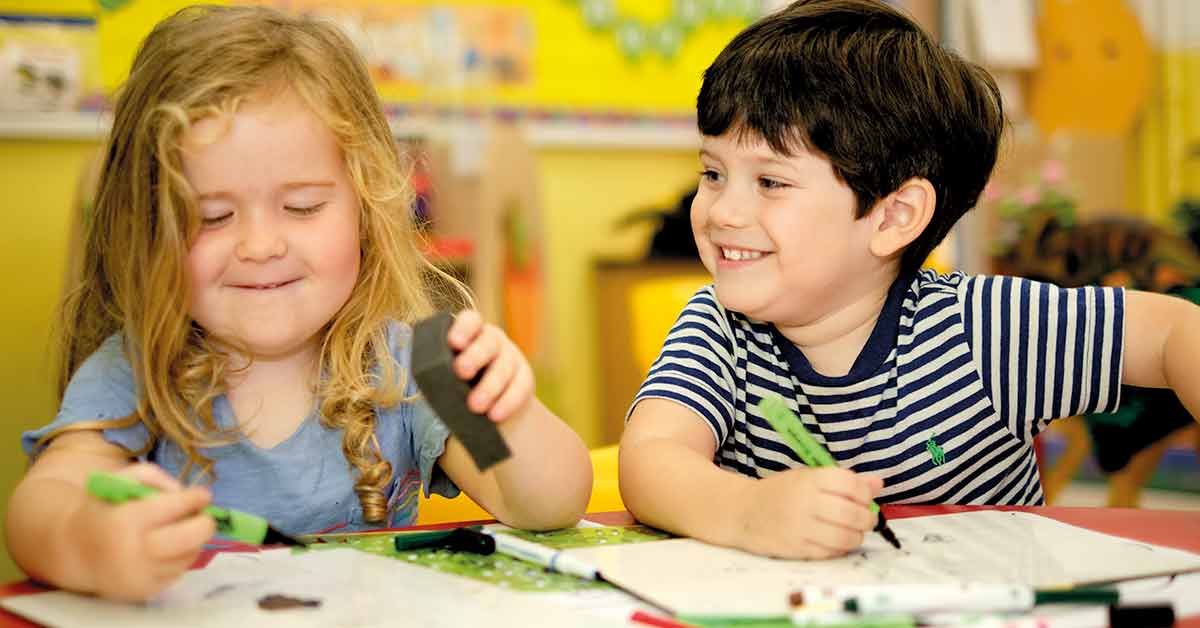
At Walnut Tree Walk, we believe that every child should become an active and happy learner. Our curriculum is based on the seven areas of learning in the Early Years Foundation Stage. This allows all children to shine in the areas they are most confident while at the same time developing new skills and discovering passions they didn’t have before.
We work closely with parents throughout a child's time in our EYFS. We are always available to talk at the beginning and end of the day and invite parents in throughout the year to read with the children and celebrate the wonderful learning in their books.
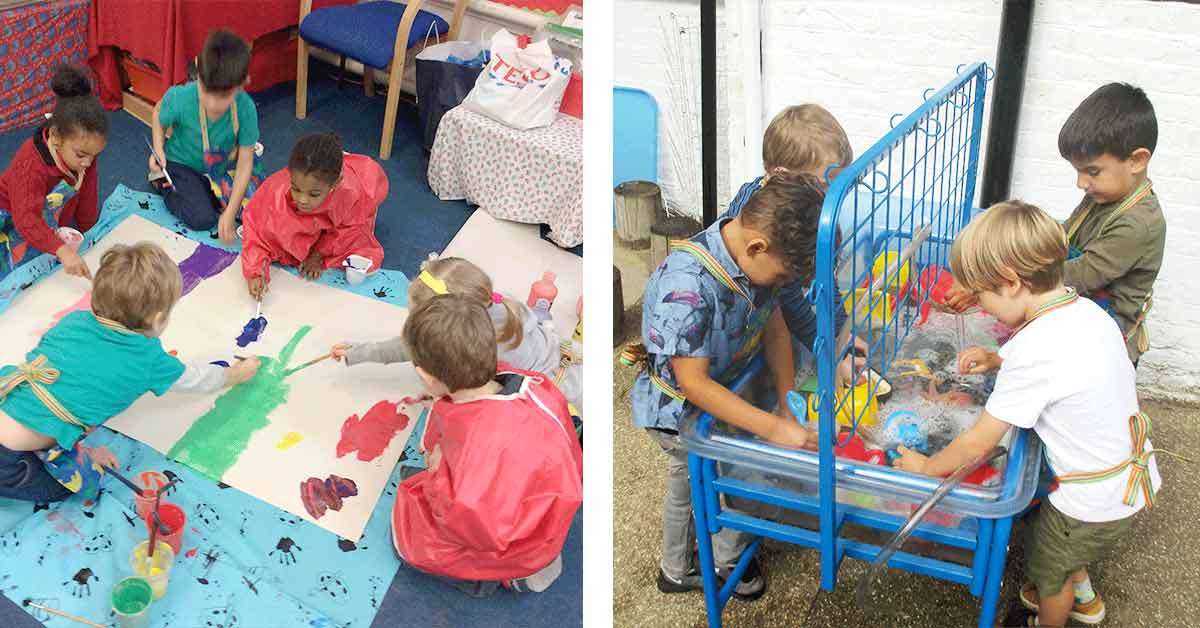
Personal Social and Emotional Development
Our school mission is for all children to ‘be the best they can be’, and in Reception we focus on our children’s self-confidence. We quickly teach the children that this is their school and give them a sense of ownership over it. This is taught through the way adults talk to the children and in specific learning sessions. We introduce the children to key members of staff such as the headteacher and office staff, so that they feel at home in their new school.
The children learn that this ownership comes with responsibility, such as looking after the environment and maintaining positive relationships with their friends. They keep the indoor and outdoor environments tidy and use the resources appropriately. Most importantly, they know how to support the emotional regulation of themselves and their peers; adults constantly model positive relationships and mutual respect.
Communication and language
Talking, thinking and questioning are central to all other areas of the Early Years curriculum so we encourage all children to find their voice at Walnut Tree Walk! From the time they join, we promote language development through role play, movement, and positive relationships.
We know that happy, excited children are more likely to absorb language so all of our learning is designed to be stimulating. We have a key topic each half term, with carefully sequenced stories to support teaching, that allows children to learn new ideas and feel more confident to talk about them as time goes by. For instance, in our topic ‘All Around us’, children read the story ‘Binky goes to London’. They then take Binky for a walk with iPads to take pictures of the Houses of Parliament and Elizabeth Tower. We use this trip to build our vocabulary, knowledge and understanding so that when it comes to the classroom, our children have a huge amount to talk about.
A key aspect of communication in Reception is learning to listen and respond when our teachers and friends are talking. We plan engaging activities related to the key class text and teach five whole class lessons a day on the carpet, as well as lots of small group, adult-led focus sessions. This ensures that the children get the specific attention they need while at the same time being ready for the transition to Year 1.
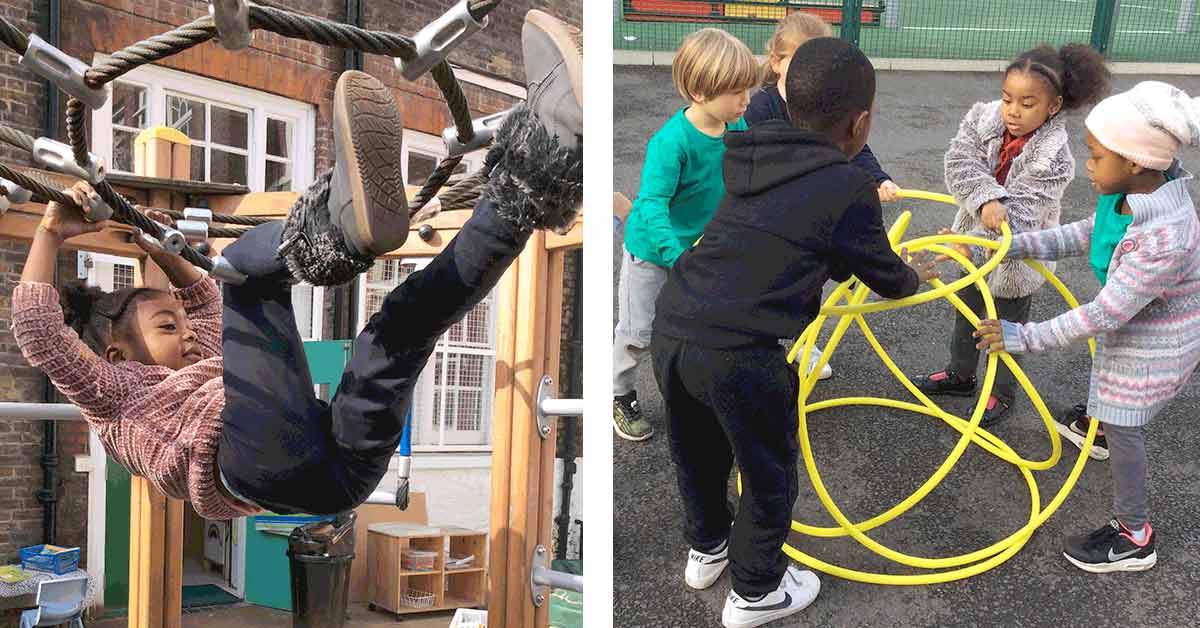
Physical Development
At Walnut Tree Walk, we believe that the early years of a child’s life are crucial to their growth and development. As such, we follow the Department for Health’s guidelines that children in the Early Years should have at least three hours of physical development a day. Physical development is incorporated into our entire day in Reception. The fact that children are able to access the outdoor area all day, every day, enables them to explore bigger movements and physical activities.
We know that physical development does not just happen through specific learning opportunities. It happens every time children zip up their coats, or bend down to tie their shoelaces. In Reception, all children are encouraged to become independent as quickly as possible so that they can take ownership of their own fine and gross motor skills, physical movements and personal hygiene.
Our enabling environment supports fine motor development. We have a variety of small world and creative resources which allow children to practice using those smaller, fiddlier movements. This means that when it comes to their lessons throughout the day, they are better able to control a pencil, pen or paintbrush.
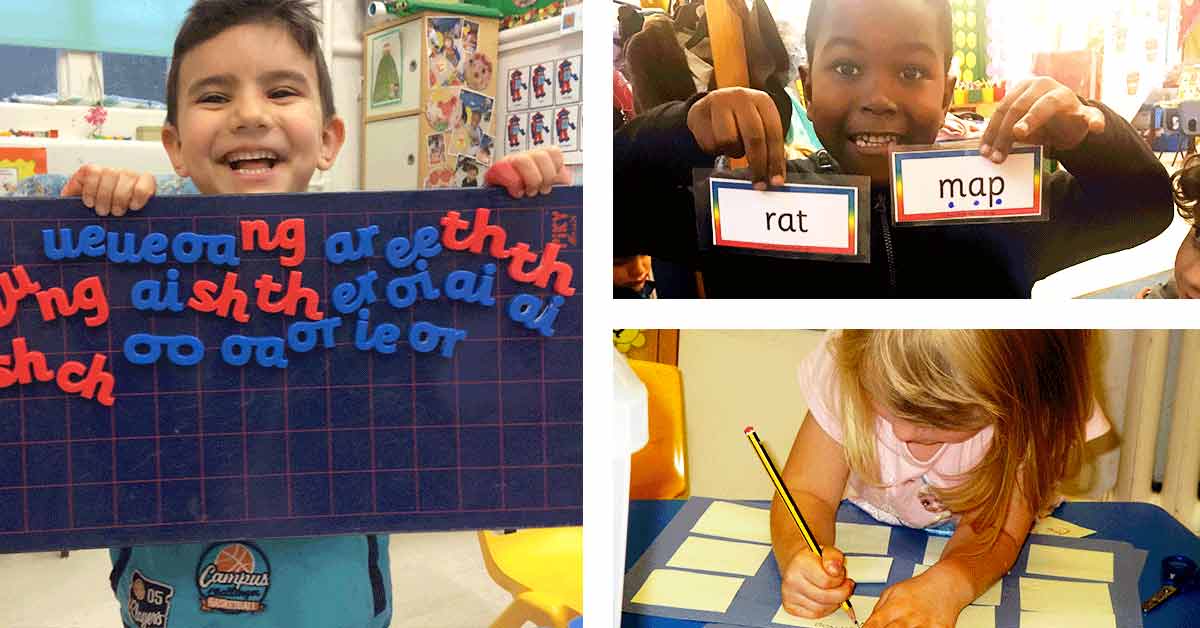
Literacy
We believe in helping our children develop a love of literacy learning that will last a lifetime. We ensure that stories are given the utmost importance in our curriculum; they are sequenced in a way that ensures both enjoyment and challenge. We deliver these stories in a variety of ways such as chatting away in funny voices as we flick through picture books, listening to our friends read, role-playing situations from stories and dressing up as characters. We ensure the children hear lots of nursery rhymes and poems to develop their understanding of language patterns. A love of words is essential for developing early reading and writing skills.
We have a specific weekly indoor and outdoor literacy opportunity to engage the greatest number of early readers and writers. These activities could involve writing letters to characters in the key text from the week, drawing huge maps on the floor using chalks to show we have understood the setting of the story, or reading some instructions to build a model.
We follow the SoundsWrite phonics scheme where children are taught the skills needed to read words and sentences in a systematic way. The books that we send home are matched to the sounds that the children are learning so adults can support children at home.
Each child writes every day on a whiteboard in their phonics lesson and produces one more formal piece each week so we can closely monitor their early writing development
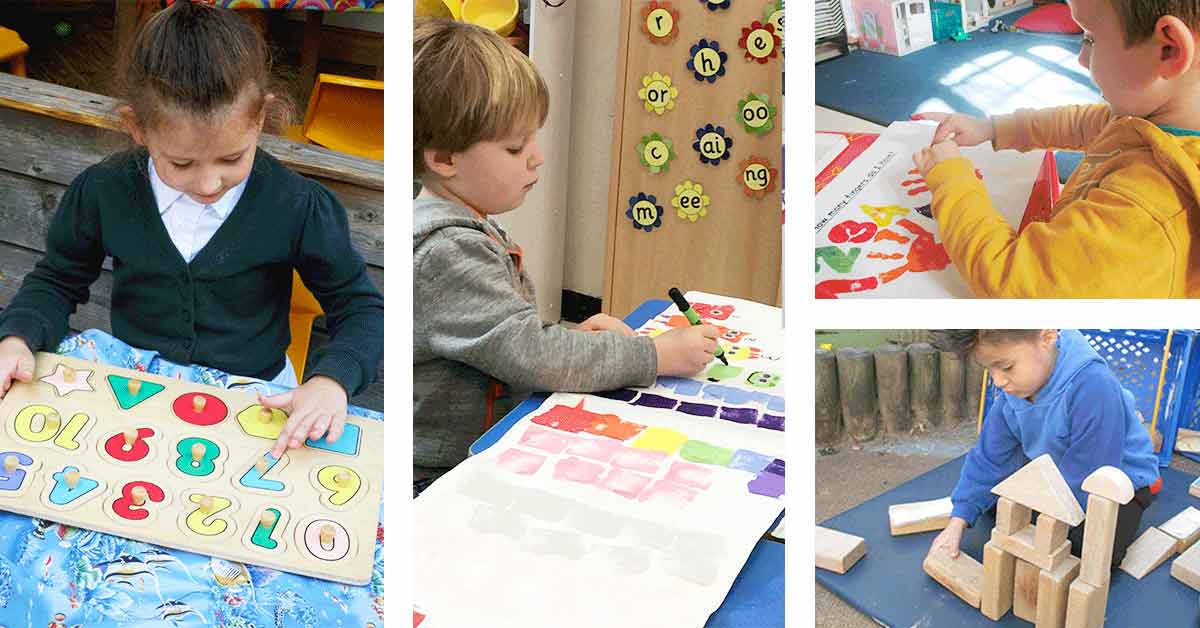
Mathematics
In Reception at Walnut Tree Walk we aim to provide a meaningful and exciting start to our children’s mathematical journey. We recognise that a positive relationship with mathematics will enable children to develop the thinking, reasoning and problem solving skills needed to succeed throughout the rest of their time in the primary phase. We teach mastery maths, following the White Rose scheme of work which supports the transition to Year 1.
We balance an enabling mathematical environment which encourages independent exploration of concepts with daily focused inputs to ensure all children are able to access the curriculum. Mathematical thinking is embedded in the daily language of our classrooms. We count our friends in the morning and think about what would happen if one more joined, count our footsteps when we walk to the school canteen and begin to read some times on the clock so we know what is happening next in the day!
A typical week will involve a daily 15-minute whole class input followed by one focus session led by the teacher with a group of 6 children. Each session is recorded in the child's maths book so that they can reflect on them at a later date and be shared with parents.
We build in time to have follow up sessions with individual children who have not grasped a concept or who need to be challenged to think at greater depth in our ‘Mastering Number’ programme, which is an additional lesson taught just before lunch.
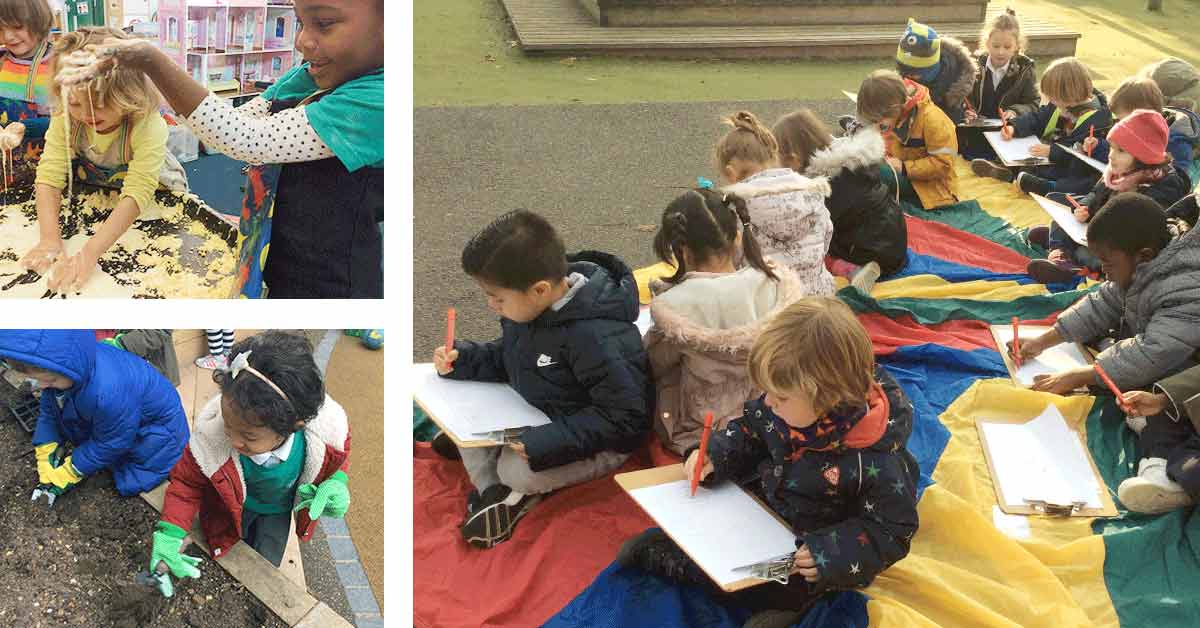
Understanding the World
At Walnut Tree Walk we have a diverse community and we use this to support our children to experience a wide range of experiences, cultures and religions. As well as engaging in religious festivals such as Diwali and Christmas, we celebrate cultural events such as Chinese New Year. We embed activities in our linked provision planning, and on a week such as this you might find children making Chinese lanterns, writing letters to send to loved ones in red envelopes, and cooking using noodles and different healthy ingredients! Our children are taught to celebrate similarities and differences, as well as noticing changes over time.
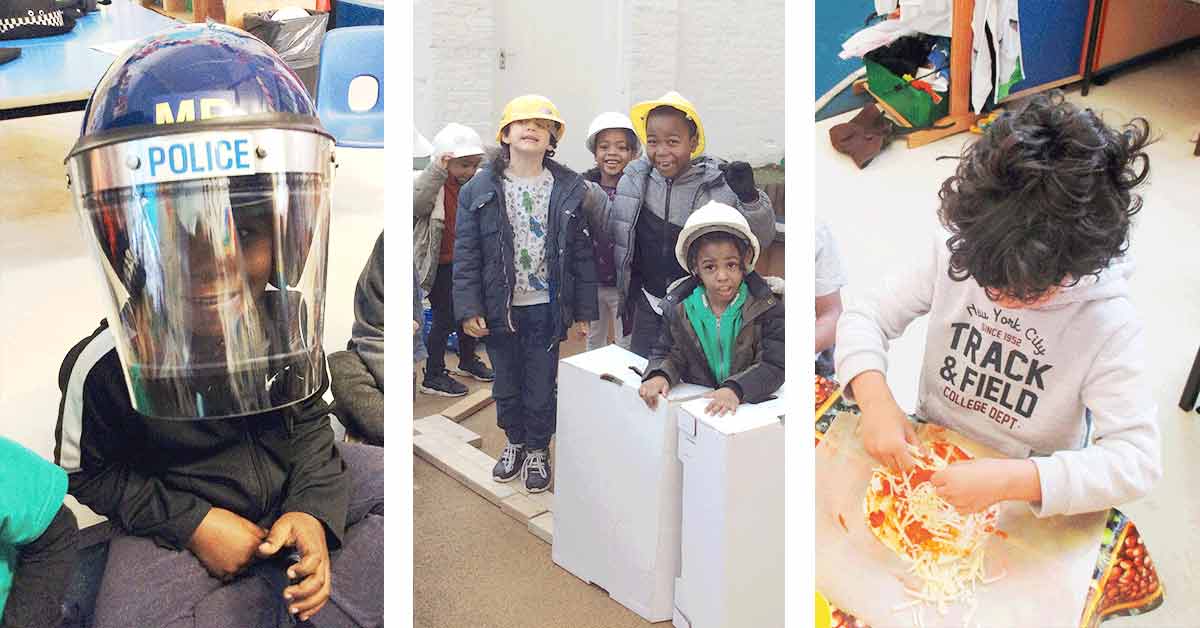
We are very fortunate that our local built environment is one of the most dramatic in the country, so we base a lot of our teaching around key local landmarks and we think about how they may have come to be there and developed over the years.
We recognise that many of our children live in very urban and built up environments so we endeavour to teach about environments and animals that are more commonly found in the countryside, and take them to visit a local farm.
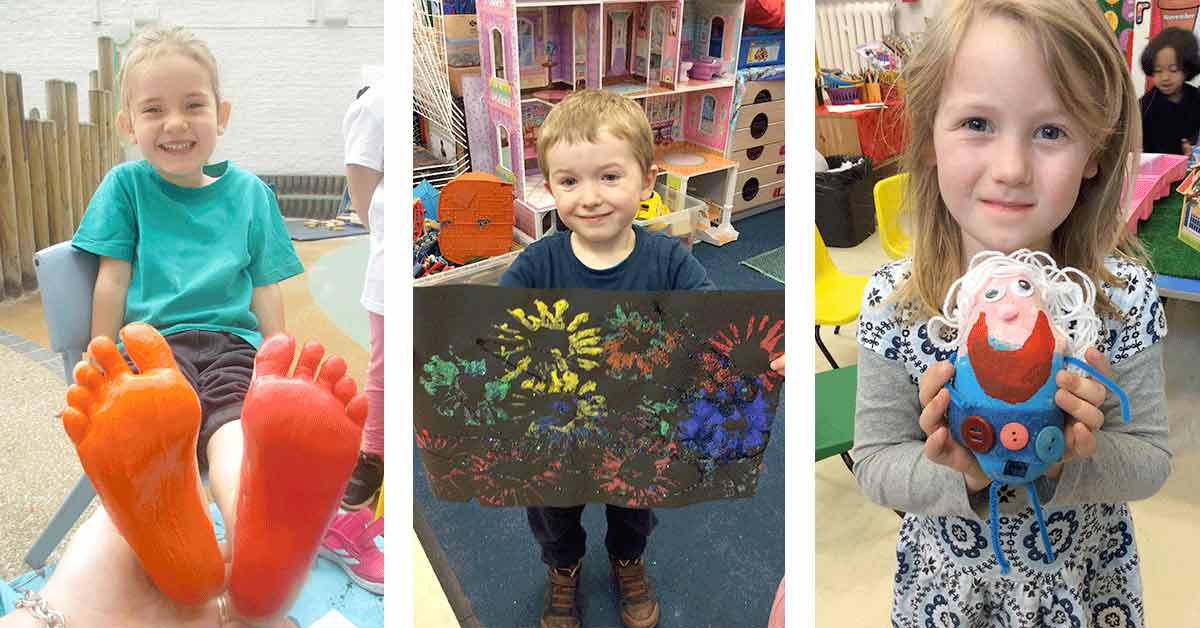
Expressive Arts and Design
In the Early Years we believe that art and design can support the whole curriculum because positive experiences can develop creativity and independent thinking, and boost confidence, self-esteem and personal, social and emotional development.
As such, at Walnut Tree Walk children are able to access an art activity every day, which they can take part in independently and create a physical representation of their thoughts and feelings.
Our children develop the practical skills needed to be able to make a piece of art. This could involve holding a paint brush, using scissors appropriately, manipulating a material such as playdough or clay, or knowing that there are different types of glue that have to be used at different times.
They are encouraged to discuss their plans before they make their model, drawing or painting, but also to have the confidence to change their ideas as they come up with new ones.
We celebrate pieces of art as a class, with children given the chance to come to the front and discuss the key features of the work.
In adult focus groups, our children learn to talk about and compare pieces of music (e.g “this music sounds like…”). They also learn to distinguish and describe pieces of music and changes in pieces of music (e.g “this music started like…. But finished like …. “). We provide an enabling environment both inside and outside where children can play freely - uninterrupted by adult ideas - so they can be curious, explore and create their own music.

